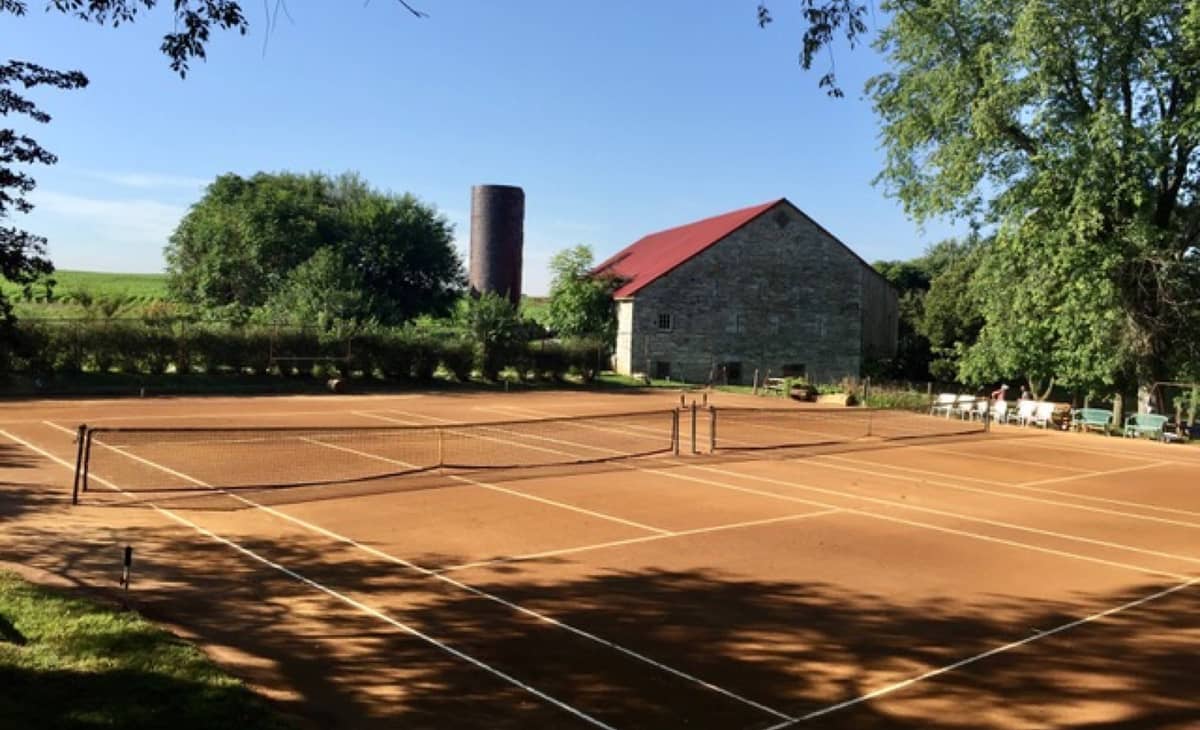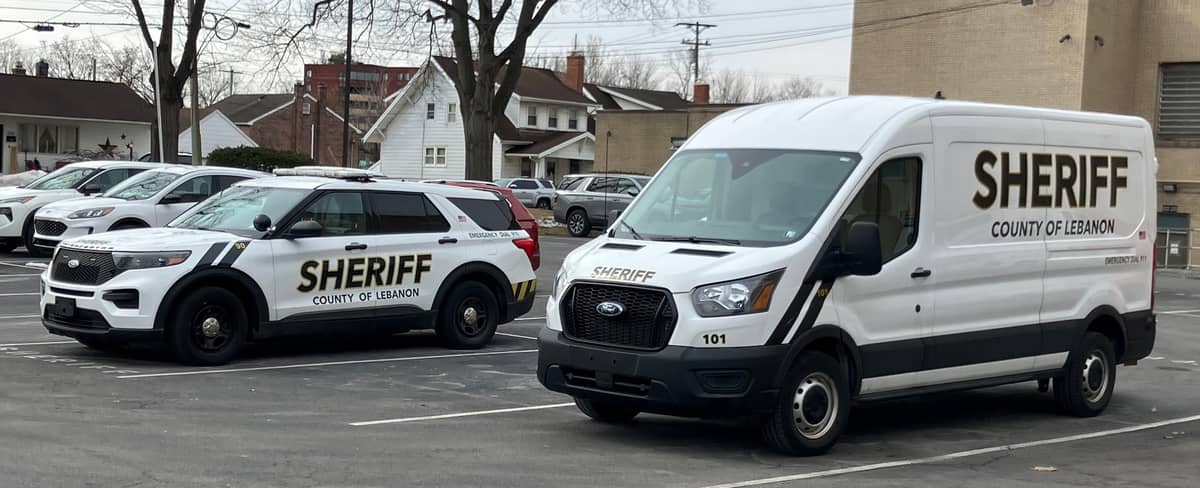This column was submitted to LebTown. Read our submission policy here.
It is difficult to understand just how different life was 90 years ago. World War II had not started, America was in the midst of the Great Depression, and Herbert Hoover was president.
George Brightbill, a local legend, celebrated his 90th birthday earlier this month. For the past 60 years or so, he’s worked to maintain a hidden Lebanon County gem: Green Hills Racquet Club, featuring red clay tennis courts on private property near Quittapahilla Creek and Cleona Elementary in the midst of Cleona farmland.
“George has diligently cared for these courts for many decades and is a true asset to our tennis community,” said Green Hills owner Vinny Seiverling. “His work ethic is an inspiration to all of us. His passion and dedication to the club has resulted in a spectacular and unique place to play tennis on natural clay courts.
“We are incredibly grateful for all of his hard work.”

Green Hills was built in 1957 by seven friends and tennis enthusiasts. Brightbill started working on the courts in the early ’60s; he became a full-time member of the club in 1967.
“This was a regular cornfield before,” said Brightbill. “I’ve basically been here doing something or another since the middle ’60s; of course, I was still working. Everybody pitched in here; we’d have Saturdays where everybody rolled the courts because everybody was young and could do the work.”
The club only allows 25 members. The current president is Jeff Robbins, who is an assistant tennis coach at Lebanon Valley College.
“The membership is capped simply because the courts are on the private property of the home of Hadjh Ahrns and Vinny Seiverling,” said Robbins. “But guests play there frequently.”
Brightbill is still the groundskeeper of Green Hills today and shows no signs of stopping any time soon.

“Nobody ever took over,” said Brightbill. “I started doing it because I would have crazy shifts at Bethlehem Steel. I would do my playing early in the mornings when I got off of work at 7 in the morning and so I started maintaining the courts. I worked different shifts each week. One week 7 a.m. to 3 p.m., next week 3 p.m. to 11 p.m. and the last week 11 p.m. to 7 a.m. That’s how people worked years ago.”
Hard work has defined Brightbill since he was a child. He grew up without running water and no electricity in his home.
He was stationed in Germany in the aftermath of World War II and then returned to Lebanon and spent his entire working life at Bethlehem Steel. He would often work more than 60 hours a week.
“When I look at people today they’re talking about a four-day work-week and 40-hour shifts,” said Brightbill. “I used to work 65 hours a week. I didn’t mind though; we were close. It was like family.”
Having spent the majority of his life in Lebanon, Brightbill has seen the city change a lot through the years.
“[Lebanon has changed] drastically,” said Brightbill. “It is much more diverse now. Production-wise we had the Bethlehem Steel, we had the Steel Foundry, we had silk mills that made nylon ray silk stockings and we had shoe factories. We have no manufacturing at all anymore. I don’t go in the city much at all anymore.”
Brightbill was a three-sport athlete at Myerstown High School (now Elco), and he took up tennis outside of school when he was 11.
“In high school we only had soccer, basketball and baseball and I played all three,” he said. “I played tennis when I was 11 years old at a playground in Myerstown, and I worked there at the little kids’ pool. Back in the day there were beautiful clay courts there, now they are hard cement courts.”
Brightbill has been an active supporter of Lebanon County sports. He has been following LVC sports since he was 6 years old and has enjoyed watching all the Lebanon County high school sports teams play.
“My one son went to Lebanon High. I used to follow Lebanon and Cedar Crest sports a lot,” he said. “I went to LVC games a lot, and I was just thinking about how professor Art Ford died. I used to shoot basketball with him and work out at the [LVC] fitness center with him. He was an amazing man.”
When he graduated high school, every town had their own high school and now there are only five in the county. He also served as a tennis coach for Annville-Cleona for many years.
“I coached with Joy Riley and I coached with her for five years,” said Brightbill. “Then a woman by the name of Amy Blank took over and in my last year in 2010 we went to states. I coached [guys and girls] for years but my last few years I just did the girls.”
Brightbill’s commitment to the Lebanon tennis community and his hard work ethic have served as an inspiration to many.
“I consider myself a steward of the club built and maintained by George and his generation for many decades,” said Robbins. “The courts are like a living time capsule connecting us to a bygone past.
“And still today, at age 90, George is still able to do back-breaking labor that people half his age could not – or would not – do. His dedication and work ethic are a service to the community that is enjoyed by young and old alike when they gather to play a game they love with friends they cherish.”
Charles Robbins is the son of Green Hills president Jeff Robbins. A junior at Cedar Crest High School, Charles Robbins is also editor of The Talon, the school’s student newspaper, and a member of the boys tennis team. He is pictured below at Green Hills Racquet Club as a young boy.


























